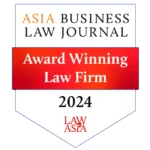Summoned by the KPPU? How is the Due Process of Law in KPPU?

Recently, according to online news, several cooking oil business actors were summoned by the Business Competition Supervisory Commission (Komisi Pengawas Persaingan Usaha, “KPPU”) to explain the alleged violations of Law 5 of 1999 on Monopolistic Practices and Unfair Business Competition (“Law 5/1999“). In addition to cooking oil business actors, the KPPU investigating team had previously summoned many business actors to explain their involvement in the alleged violation of Law 5/1999. Then what exactly is the due process of law in KPPU?
A. Due Process of Law at KPPU
Before discussing further the due process of law at the KPPU, it should be noted that cases at KPPU originate from two sources i.e., Report and Initiative. Based on Article 3 paragraph (1) of Regulation of Business Competition Commission Number 1 of 2019 concerning Procedures for Handling Cases of Monopolistic Practices and Unfair Business Competition (“RBCSC 1/2019”), anyone who knows that there has been or there should be an alleged violation of the Law can report to the Commission. Meanwhile, the Commission can take the initiative to examine business actors if there are alleged violations of Law 5/1999 even without any report. It is very possible for business actors who carry out business activities to be summoned by the KPPU related to the dynamics that occur in the business activities that have the potential to violate Law 5/1999.
If the case has passed the report or initiative stage, the KPPU will then determine whether or not the business actors must enter the investigation stage based on the evidence that has been fulfilled. At this point, KPPU would summon the business actor, the status of which would later be determined either as a Reported Party or as a Witness based on the evidence found. After the investigation process is running and at least 2 (two) pieces of evidence are found, the case proceeds to the Commission Tribunal Session.
The Commissioner who acts as the Commission Council then leads the trial to prove whether the business actor has violated Law 5/1999. At this stage, the Reported Party as the party suspected of violating Law 5/1999 can present witnesses and experts to prove its innocence. The proceedings of the Commission Council are not much different from civil legal proceedings, but here the investigator team is obliged to prove the alleged violation of 5/1999 before the court.
Furthermore, if the Commission Council has decided through the Commission’s Decision that the Reported Party is found to have violated Law 5/1999, the Reported Party will be subject to an administrative sanction in the form of a fine at a minimum of IDR 1 billion (one billion Rupiah) as the basic fine, and a maximum of 50% (fifty per cent) of the net profit income earned by business actors in the relevant market during the period of the violation of Law 5/1999, or a fine of 10% (ten per cent) of the total sales in the relevant market during the period of the violation of Law 5/1999.
However, it should be noted that the Reported Party has the opportunity to file an objection through the Commercial Court to appeal against the Commission’s Decision at the Commission’s Hearing. Then, if at this stage the sanction remains, the Reported Party can file an Appeal to the Supreme Court to prove that the Reported Party is innocent. However, if the Reported Party remains being punished at the Cassation level, then the Reported Party must pay administrative sanctions. In the Cassation process, the amount of fines imposed may be lower or higher hence that the Reported Party must thoroughly prove the non-existence of such alleged violations of Law 5/1999.
Read More: Summons in Civil Law
B. Imposition of Sanctions in the Form of Fine
As additional information, fines for violations in business competition are imposed based on the KPPU decision or court decision that have permanent legal force. This fine must be paid no later than the time of maturity in accordance with the laws and regulations in which the Reported Party who does not pay the payable Non-Tax State Revenue (Penerimaan Negara Bukan Pajak, “PNBP”) will be subject to a fine of 2% (two per cent) per month of the total PNBP payable, which must be paid no later than 24 (twenty-four) months.
During the due process of law at the KPPU, the business actors are allowed to be accompanied by a legal advisor who understands competition law in Indonesia. In advising business actors to safely conduct business activities, a legal advisor must understand the market’s characteristics and the demands filed by the investigator for the alleged violations of Law 5/1999. As a result, with the necessary understanding, the business actors can carefully and comprehensively prove otherwise and refute the alleged violations. In general, in carrying out business activities, business actors must pay attention to Law 5/1999 in order to continue to carry out business activities that are in accordance with competition law.
***
ADCO Law is a law firm that offers clients a wide range of integrated legal services, including commercial transactions and corporate disputes in a variety of industry sectors.
Over the course of more than a decade, we have grown to understand our client’s industry and business as well as the regulatory aspect. In dealing with the business dynamics, we provide comprehensive and solid legal advice and solutions to minimize legal and business risks.
Should you have more queries regarding this matter, please do not hesitate to contact us.
ADCO Law
Setiabudi Building 2, 2nd Floor, Suite 205C
Jl. H.R. Rasuna Said Kav. 62, Setiabudi Karet
Jakarta Selatan, 12920, Indonesia.
Phone: +6221 520 3034
Fax: +6221 520 3035
Email: [email protected]
Disclaimer: This article has been prepared for scientific reading and marketing purposes only from ADCO Law. Accordingly, all the writings contained herein do not constitute the formal legal opinion of ADCO Law. Therefore, ADCO Law should be held harmless of and/or cannot be held responsible for anything performed by entities who use this writing outside the purposes of ADCO Law.





















